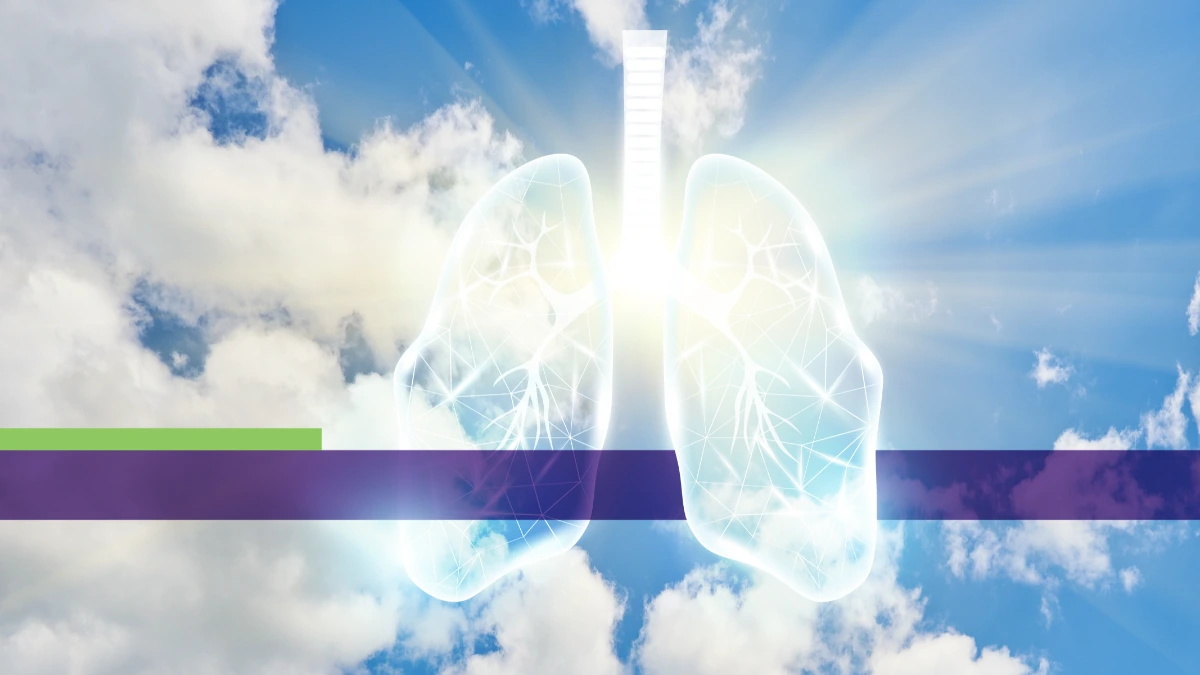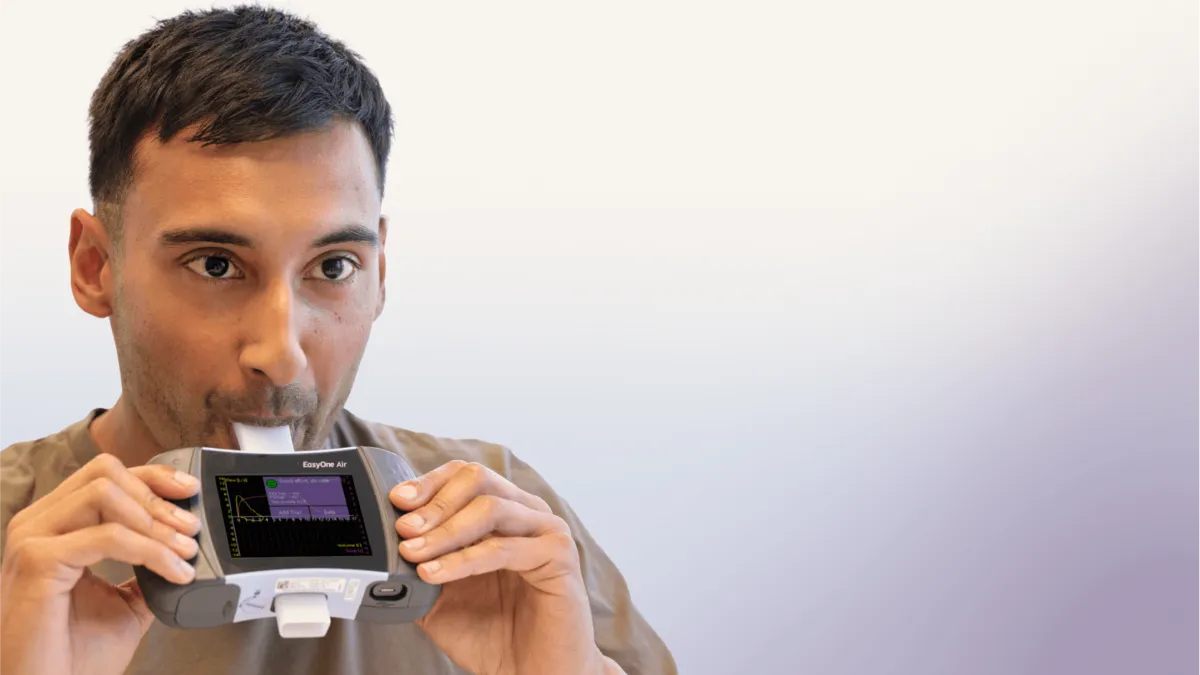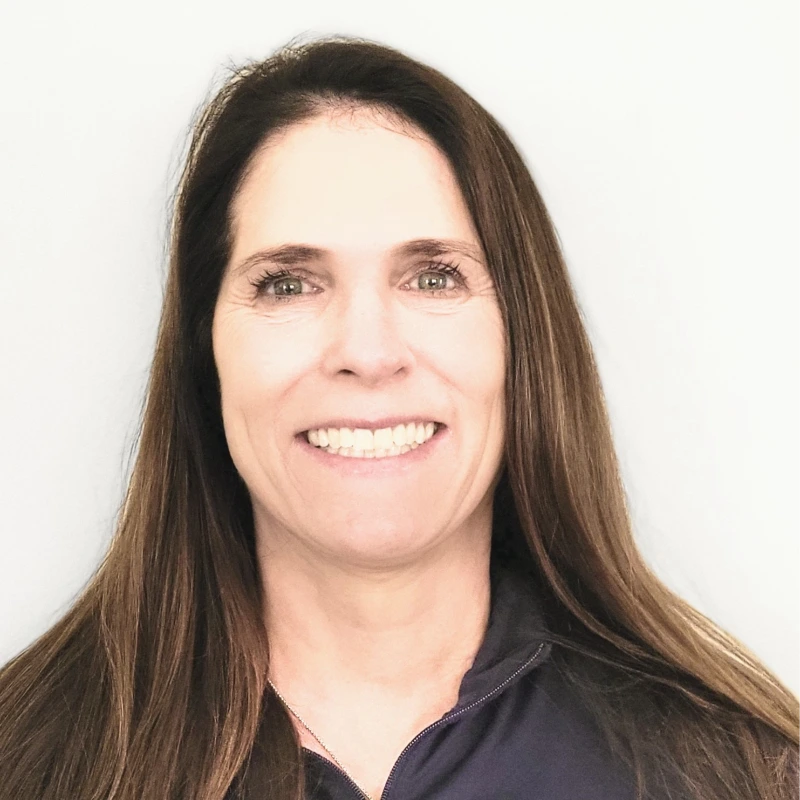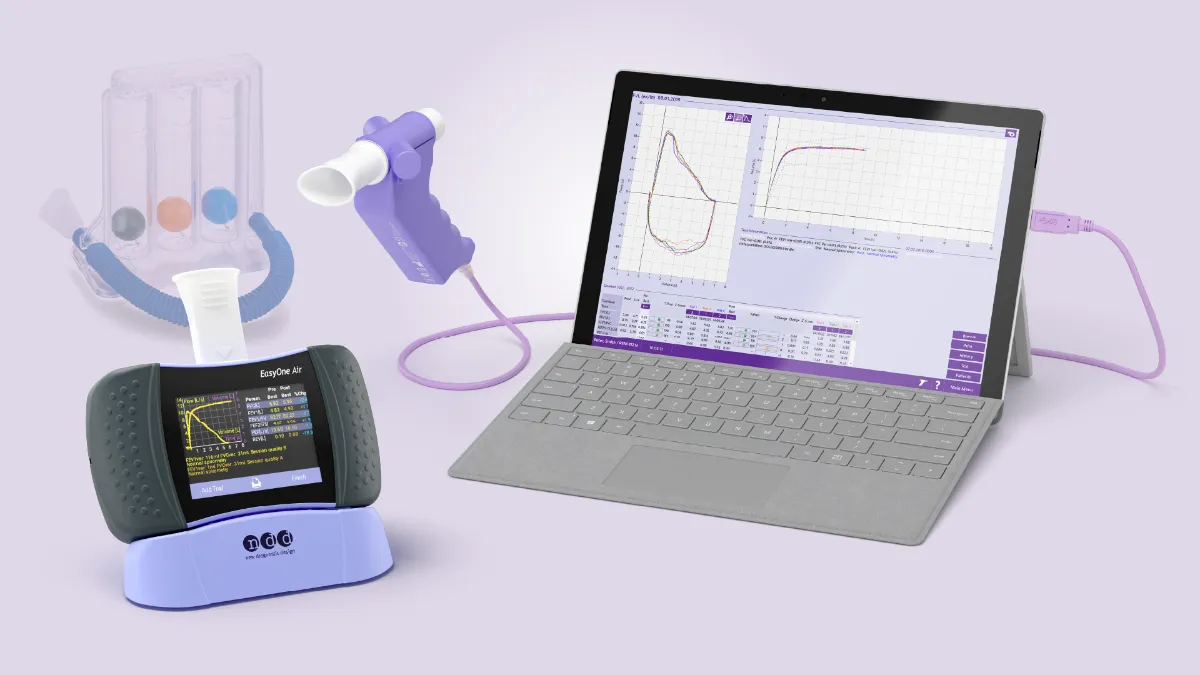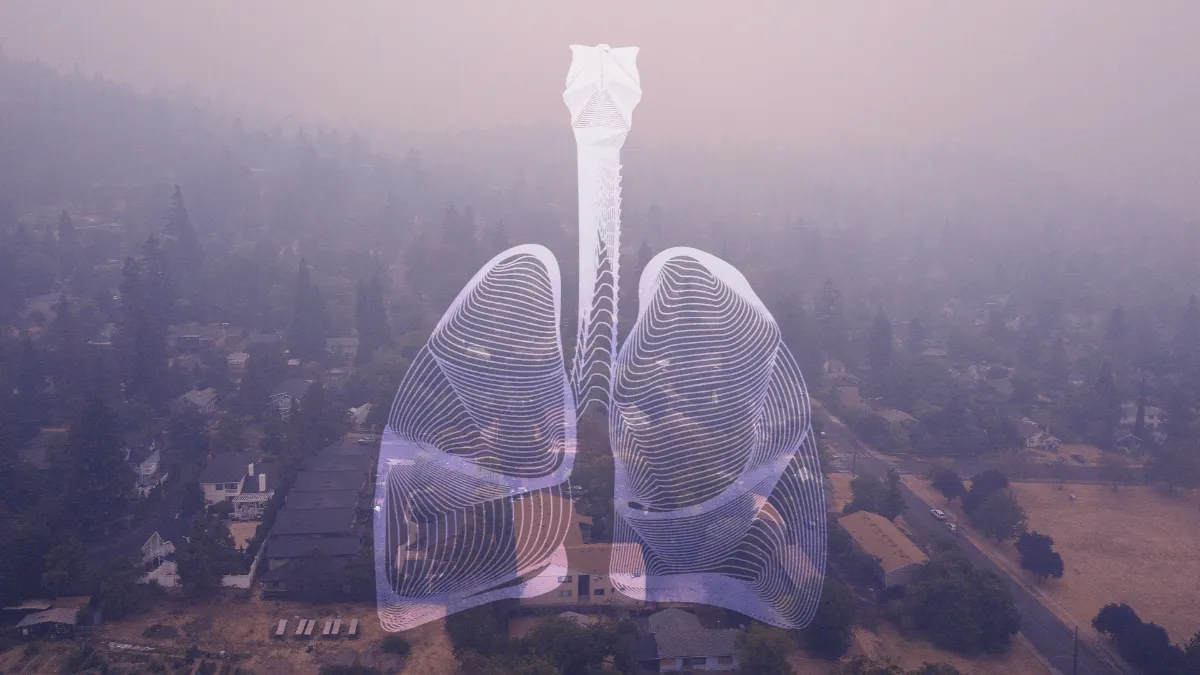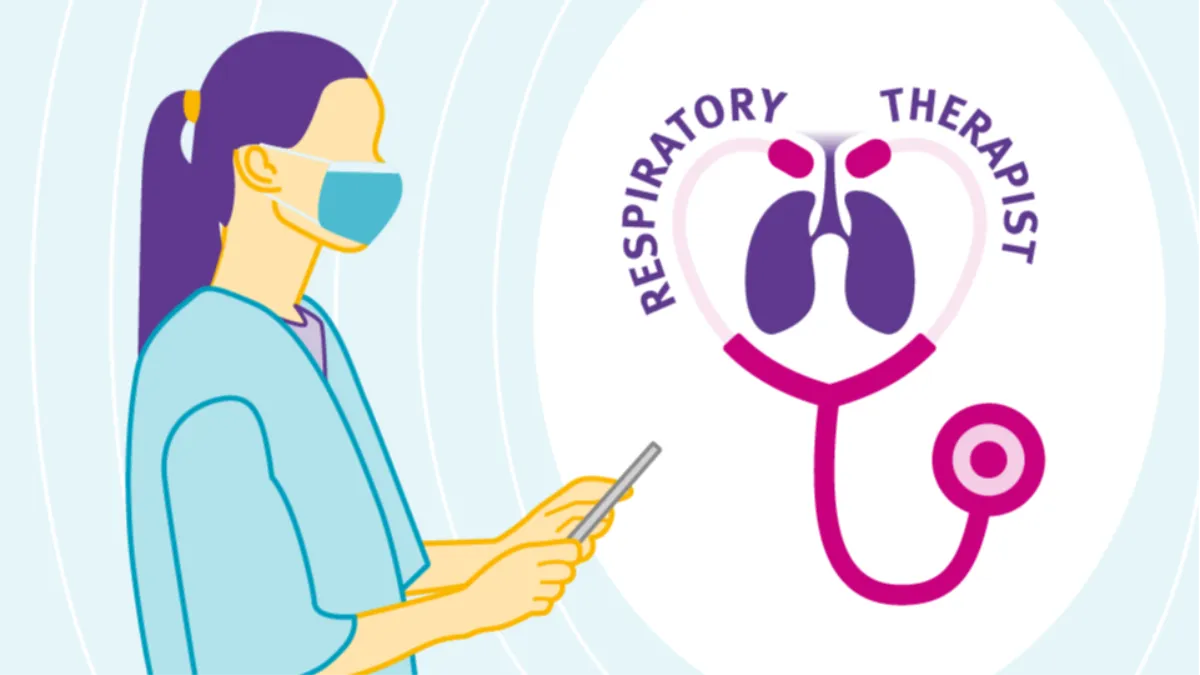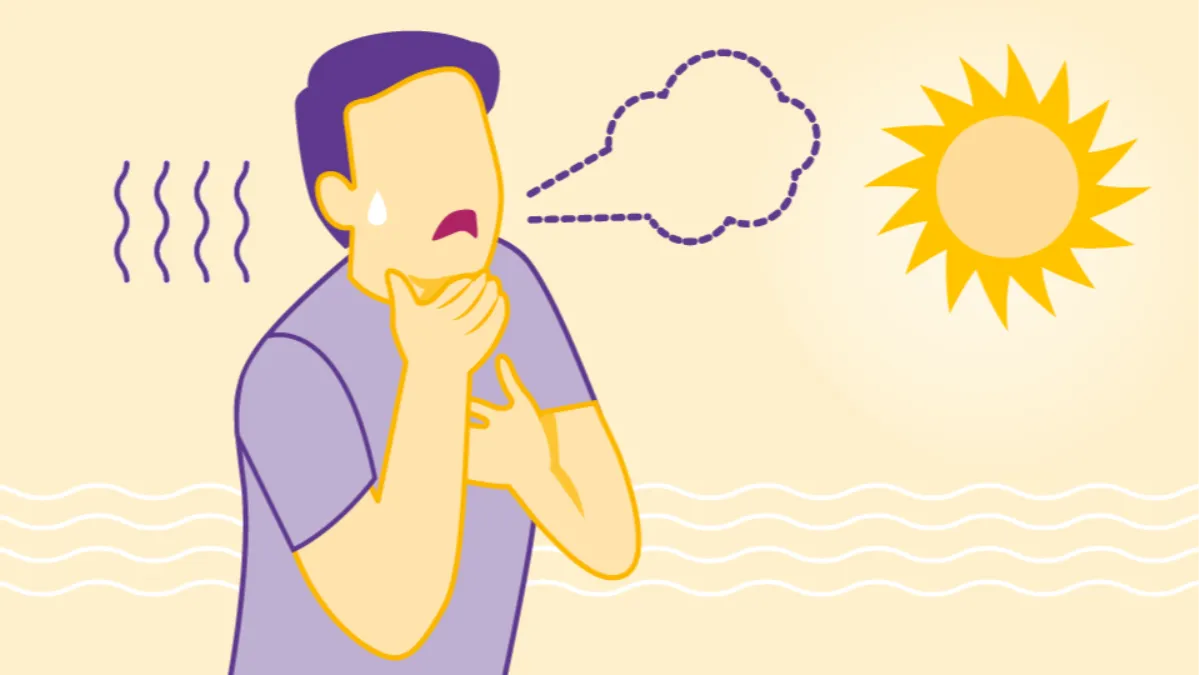Back to the basics: The lungs
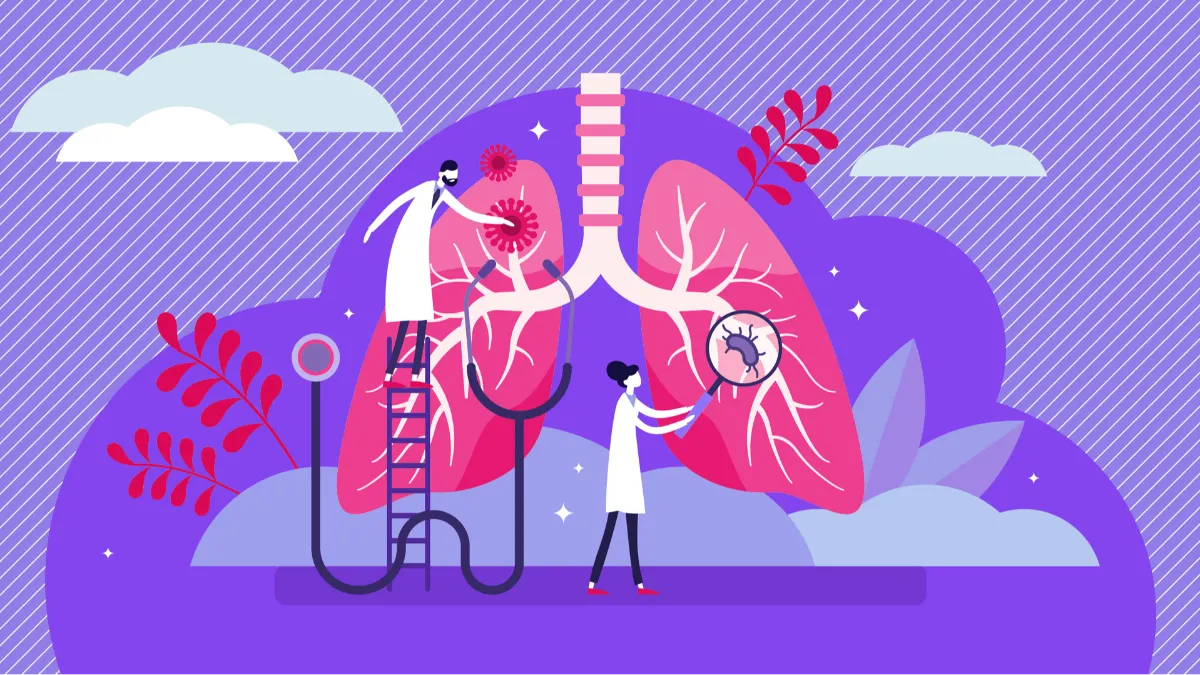
The lungs are a critical component of the respiratory system, helping us breathe. Each lung has lobes, which collect oxygen and remove carbon dioxide, also known as waste. The right lung is the larger lung, consisting of three lobes. The left lung, which has only two lobes, is smaller to make room for the heart.
Although the two lobes differ in size, they hold the same job in the respiratory system, which is to help us breathe.
Healthy lungs oxygenate the body and remove waste. But sometimes, diseases or exposure to toxins inhibit proper lung function.
To fully understand lung function, let’s look at the respiratory system, how a healthy respiratory system functions, and how diseases like asthma and COPD affect breathing.
What is the respiratory system? #
The respiratory system involves the upper and lower respiratory tracts.
Upper Respiratory Tract
The upper respiratory tract begins at the nose and includes the mouth, pharynx, and larynx.
The start of each breath begins at the ***nose.***We all know the nose allows us to smell, but it has much more responsibility than that. As we inhale through our nose, it helps warm and humidify the air before moving on to the rest of the respiratory system.
Even tiny “nose hairs” serve a purpose. The scientific name for nose hairs is epithelial cilia, which live in the nasal cavity with a mucous membrane. Together, the mucus and cilia in the nose filter the air before it travels into the lungs by removing unwanted particles like dust, dirt, and other pollutants.
Once the air becomes warmed and humidified in the nose, it makes its way down the nasopharynx, the upper portion of the throat, then to the pharynx (the scientific word for throat).
The pharynx links the nose and mouth to the voice box, or larynx, where the lower respiratory tract begins.
Lower Respiratory Tract
Air moves from the larynx, down the trachea (windpipe), and then to the lungs. When air reaches the lungs, it travels down through the bronchial tubes.
There are two main bronchial tubes, one entering each lung. From there, air continues traveling through smaller branches stemming from the main tubes; these are bronchioles. Tiny sacs called alveoli live at the end of the bronchioles.
It’s in the alveoli where oxygen and carbon dioxide exchange occurs.
What does the respiratory system do? #
The respiratory system plays a crucial role in supplying the body’s cells with oxygen. Without sufficient oxygen, we cannot survive.
It also helps us exhale carbon dioxide, also known as waste gas. Serious health concerns arise from too much carbon dioxide in the blood. As you see, the gas exchange between oxygen and carbon dioxide in the alveoli is crucial to your health.
Diseases that affect the lungs #
Sometimes, damage to the lungs occurs from irritants, toxins, bacteria, or viruses. Common diseases affecting the lungs include:
- **Asthma.**Asthma is a long-term disease that affects the lungs. When someone has an “asthma attack,” they can’t fully expand their lungs to get the air in. Certain allergens and pollutants often trigger asthma attacks.
- COPD. COPD stands for chronic obstructive pulmonary disease. COPD is obstructive, and someone with this disease has difficulty getting air out and expelling waste gas. Chronic bronchitis and emphysema are two types of COPD. The most significant cause of COPD is smoking, although one in four people with COPD never smoked.
- COVID-19. Although scientists and researchers continue to learn the effects of COVID-19, we know that this virus can result in short- and long-term damage to the lungs, like pneumonia, acute respiratory distress syndrome (ARDS), and sepsis, which can have lasting effects on the lungs.
Each of these lung diseases causes shortness of breath, a symptom warning that your lungs aren’t working correctly.
The importance of lung health #
If you have COPD, asthma, or another lung disease, it’s crucial to take steps to improve your lung function.
- Don’t smoke. Toxins, like cigarette smoke, are within our control, and quitting smoking is a must.
- Avoid occupational health exposures. Occupational health exposures are common in some industries like factories and garages. And these exposures can cause long-term lung damage. Do your best to avoid these exposures or take the proper precautions to keep yourself safe.
- Exercise. Regular exercise makes your body and your lungs stronger. And over time, your muscles need less oxygen to move and will produce less carbon dioxide.
- Eat a balanced diet. Consuming the proper nutrients positively affects lung function and builds a robust immune system. The body requires oxygen to break down nutrients and produces carbon dioxide as waste. Since carbohydrates produce more carbon dioxide and use more oxygen than fats and proteins, some experts recommend that people with certain lung diseases (e.g., COPD) follow a low-carb diet.
- Understand your baseline lung function numbers. Pulmonary function testing paints a picture of your lung health, measuring how much air your lungs hold, how air moves in and out of your lungs, and how well your lungs oxygenate your body. Lung function tests act as a warning indicator for lung disease. Understanding your baseline lung function numbers helps you and your healthcare provider develop a treatment plan. Monitoring these numbers over time allows you to see trends and get your treatment adjusted accordingly.
Lung health is essential. Your lungs help keep you alive, so it’s critical you take care of them. Begin by monitoring yourself for symptoms like shortness of breath or a new cough and routinely seeing your healthcare provider. Ask your provider about lung function testing. A lung function test is a critical step to lung health; the earlier you receive a diagnosis, the sooner you’ll start a treatment plan and be on your way to optimal lung health.
Sources:
https://pubmed.ncbi.nlm.nih.gov/17708456/
https://my.clevelandclinic.org/health/body/21778-nose
https://www.lung.org/lung-health-diseases/how-lungs-work
https://www.aafa.org/asthma-triggers-causes/
https://www.cdc.gov/copd/about/index.html
https://www.ncbi.nlm.nih.gov/pmc/articles/PMC4818249/
https://www.lung.org/blog/asthma-and-nutrition


